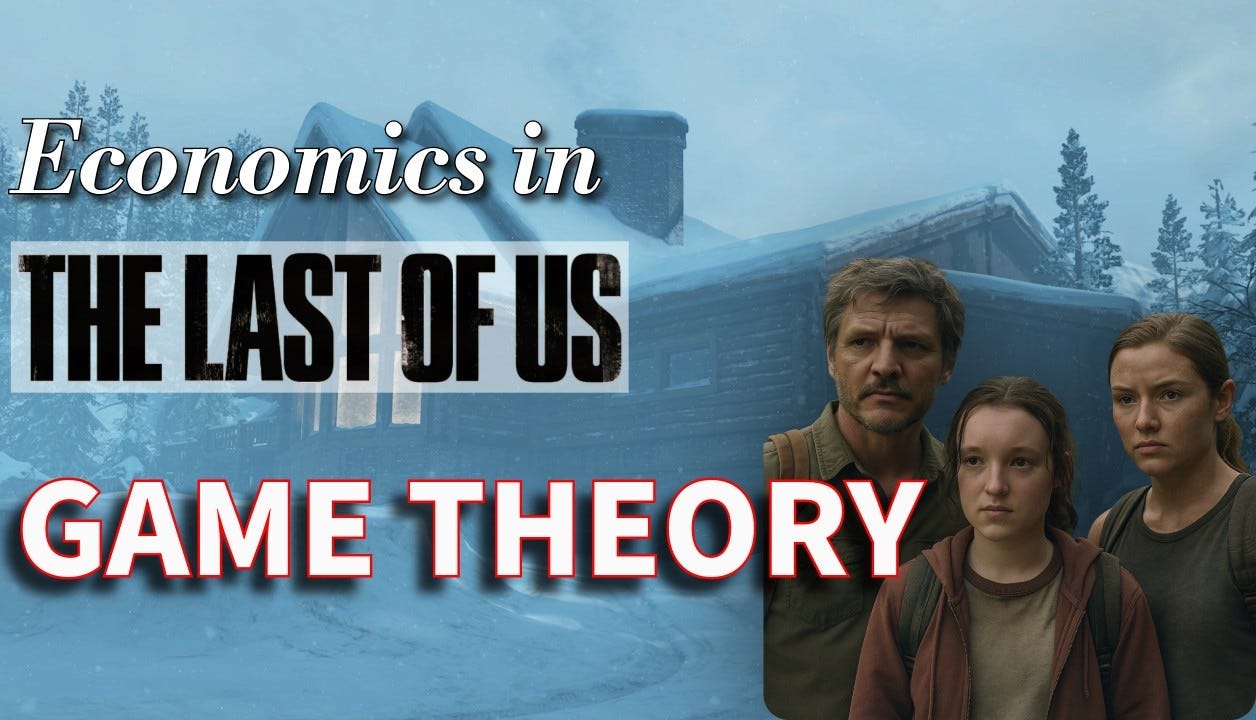Game Theory in HBO's The Last of Us
A lot of game theory with a lot of decisions are driven by spite
This post is adapted from my latest video in the “Pop Culture Economics” series. You can watch the full video below.
What can a post-apocalyptic TV show teach us about game theory? Quite a bit, actually.
In HBO’s The Last of Us, characters constantly face life-or-death decisions — and surprisingly, many of those decisions are perfect illustrations of game theory in action.
Watch how interrogations, revenge quests, and bluffing all play out like high-stakes strategy games. The decisions we see aren't always rational in a traditional economic sense — but they make sense once we understand the true incentives and non-monetary payoffs at play.
Watch the Video
Strategic Lessons from The Last of Us
Here are a few key moments and concepts discussed in the video:
1. Joel’s Interrogation Strategy (S1, Ep8)
To find Ellie, Joel uses a coordination game — asking two captives separately for the same information. If the answers match, it increases the credibility of their statements. A powerful example of truth-telling through independent verification.
2. Credible Threats and Incentives
Joel’s method is incentive-compatible: if they lie and get caught, they die. If they tell the truth, there's a slim chance of survival. Their inability to coordinate makes lying risky — which is exactly the point.
3. Commitment Problems in Kansas City (S1, Ep5)
Contrast Joel’s strategy with the Kansas City resistance leader, who interrogates prisoners with a promise of leniency. But since she can't credibly commit to sparing them after they confess, her threat loses power. A classic case of lack of credible commitment.
4. The Power of Spite (S2 and Game)
Why do characters like Ellie and Abby risk their lives for vengeance? These decisions don't align with standard economic utility — unless you consider spite and justice as real payoffs. When we account for emotional utility, their actions become rational.
As I remind my students: understanding incentives means going beyond dollars. If we only consider material well-being, we miss what drives real human behavior — including in fictional worlds.
If you enjoyed the video, I hope you’ll share it with a friend, leave a comment, or check out other posts in this series.


